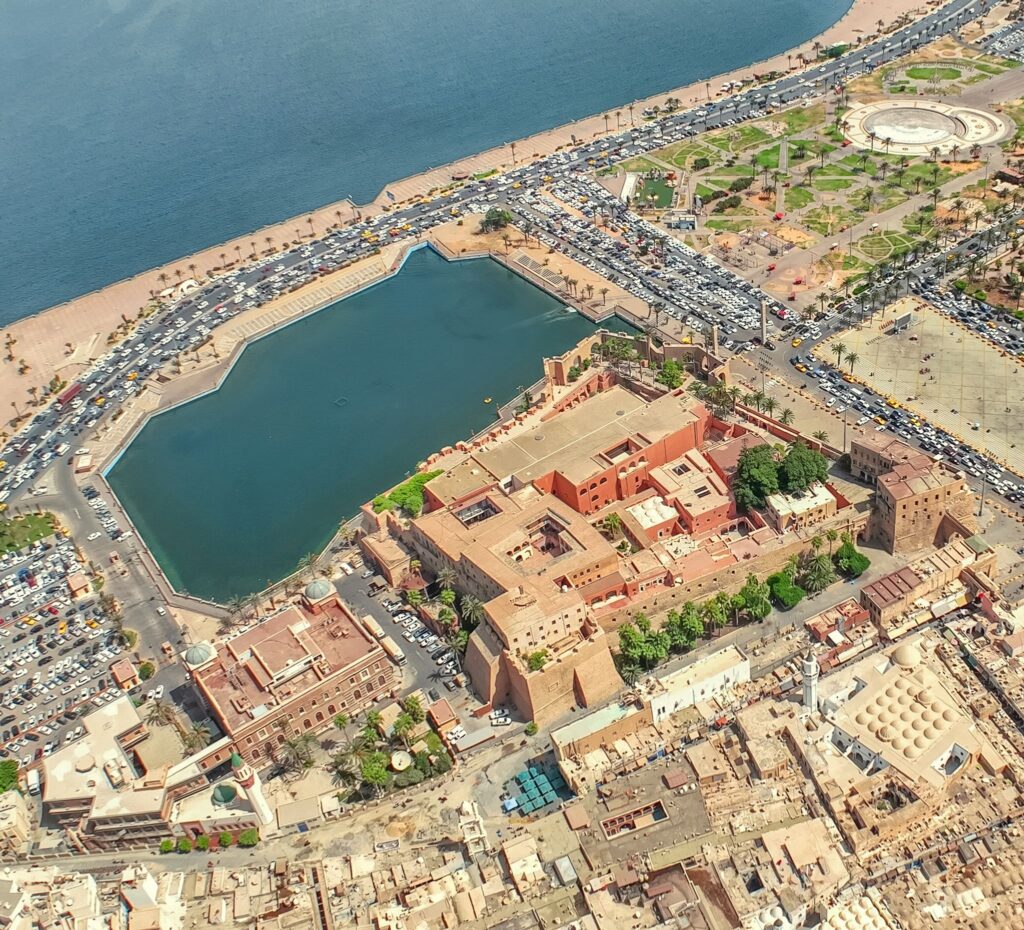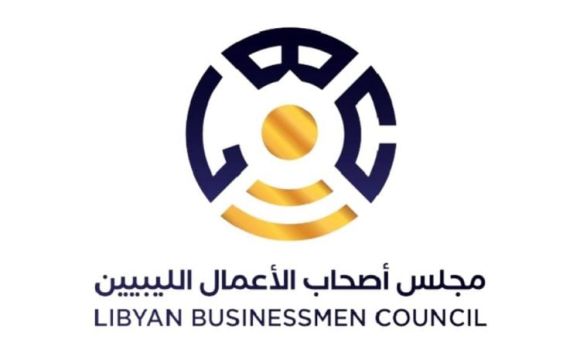Construction in Libya: Trends, Opportunities & Investment

The construction sector in Libya stands at a pivotal juncture, reflecting the nation’s resilience and ambition for growth. Amid ongoing reconstruction efforts, this industry offers significant opportunities for investors and stakeholders eager to contribute to Libya’s economic revitalisation.
Qabas | Consulting and Training, Libya’s leading advisor in the sector, exemplifies the expertise and innovation driving this progress.
Addressing the dynamics of construction in Libya is crucial, as it not only drives infrastructure development but also fosters job creation and technological advancement. Navigating the current landscape, understanding the challenges, and recognising the prospects ensures informed decision-making and strategic planning for businesses aiming to tap into this emerging market.
With increasing foreign investment and a focus on sustainable building practices, the construction industry in Libya is poised for transformative progress, making it an essential topic for those involved in regional development and economic expansion.
Table of Contents
Overview of Construction in Libya
The construction sector in Libya plays a pivotal role in the nation’s economic recovery and infrastructure development. Valued at approximately £2 billion in 2023, the industry encompasses residential, commercial, and infrastructure projects essential for national growth.
Historical Context
Post-2011, Libya has focused on rebuilding its infrastructure, addressing damages from prolonged conflicts. Major projects include road networks, bridges, and public buildings, aiming to restore essential services and improve connectivity across the country.
Legal Frameworks
Libya’s construction industry operates under comprehensive legal regulations to ensure quality and safety. Key laws include:
- Libyan Building Code: Establishes standards for construction practices and materials.
- Urban Planning Regulations: Govern the development and utilisation of urban spaces.
- Environmental Protection Laws: Ensure sustainable building practices and minimize ecological impact.
Economic Impact
The construction sector significantly contributes to Libya’s GDP and employment. In 2023, it accounted for 8% of the GDP and provided jobs for over 50,000 individuals. This growth fosters economic stability and promotes ancillary industries such as materials supply and engineering services.
Challenges and Opportunities
Despite progress, the sector faces challenges including fluctuating material costs and the need for skilled labour. However, opportunities abound with increasing foreign investment and advancements in construction technologies. Firms like Qabas Consulting & Training offer expertise in navigating these dynamics, supporting sustainable growth and strategic development within the industry.
Key Projects and Investments
Several notable projects highlight Libya’s construction advancements:
| Project Name | Type | Value (£ million) | Completion Year |
|---|---|---|---|
| Tripoli Central Hospital | Healthcare | 300 | 2024 |
| Benghazi International Airport Expansion | Infrastructure | 500 | 2025 |
| Coastal Residential Complex | Residential | 200 | 2023 |
Qabas Consulting & Training provides strategic insights and operational support for such large-scale projects, ensuring compliance with legal standards and optimizing project outcomes.
Sustainable Building Practices
Sustainability is increasingly integral to Libya’s construction initiatives. Emphasis on energy-efficient designs, use of renewable materials, and adherence to environmental regulations ensures that development aligns with global sustainability goals. Qabas Consulting assists companies in implementing these practices effectively, promoting long-term environmental and economic benefits.
Future Prospects
The construction industry’s outlook in Libya remains positive, driven by ongoing reconstruction efforts and planned infrastructure developments. Continued investment and strategic planning are essential for maintaining growth momentum. Organizations like Qabas Consulting & Training play a crucial role in guiding stakeholders through the evolving landscape, fostering a robust and resilient construction sector.

Historical Development
Libya’s construction sector has undergone significant transformation, reflecting the nation’s evolving economic and infrastructural needs.
Early Construction Practices
Traditional Libyan architecture utilised locally sourced materials such as limestone and adobe, showcasing the country’s rich cultural heritage. Early construction methods prioritised sustainability and climate resilience, with buildings designed to endure harsh desert conditions. In the mid-20th century, infrastructure development accelerated due to oil revenues, resulting in the construction of extensive road networks, public buildings, and urban housing. These projects laid the groundwork for contemporary construction standards and practices in Libya.
Impact of Political Changes
Following the 2011 upheaval, Libya embarked on extensive reconstruction efforts to restore infrastructure damaged during conflicts. The reinforcement of legal frameworks, including the Libyan Building Code and Urban Planning Regulations, ensured quality and safety in construction projects. These changes attracted foreign investment, as international firms sought opportunities within the rebuilding landscape. Qabas Consulting & Training played a pivotal role in this transition, offering expertise in navigating regulatory requirements and optimizing project strategies. The construction sector continues to evolve, integrating advanced technologies and sustainable practices to support Libya’s ongoing development.
Current Landscape
Libya’s construction sector exhibits robust growth, driven by ongoing infrastructure development and increased foreign investment. The industry’s expansion is supported by a framework of stringent legal regulations and the involvement of key stakeholders.
Key Players in the Industry
Several prominent companies shape Libya’s construction landscape. Local firms collaborate with international partners to execute large-scale projects, ensuring adherence to national building codes and environmental standards. Additionally, consulting firms like Qabas Consulting & Training provide essential expertise in operations, risk management, and strategic planning, facilitating efficient project execution and compliance with regulatory requirements.
Major Projects
Significant construction initiatives underscore Libya’s commitment to modernising its infrastructure. The Tripoli Central Hospital project exemplifies advancements in healthcare facilities, incorporating energy-efficient designs and sustainable materials. Similarly, the Benghazi International Airport Expansion enhances transportation capacity, integrating state-of-the-art technologies to improve operational efficiency. These projects highlight the sector’s focus on sustainability and innovation, aligning with national development goals.
Challenges Faced
The construction sector in Libya encounters several obstacles that impact its growth and efficiency. Understanding these challenges is essential for stakeholders to navigate the market effectively.
Economic Factors
Economic volatility significantly affects Libya’s construction industry. Fluctuating material costs, driven by global market trends, increase project budgets unpredictably. Access to financing remains constrained, with interest rates averaging 12% for construction loans, limiting investment opportunities. Additionally, the sector faces a shortage of skilled labour, with only 30% of required professionals available locally. Inflation rates, standing at 6% in 2023, further strain project costs and timelines. Qabas Consulting & Training assists firms in mitigating these economic challenges by providing strategic financial planning and workforce development solutions.
Security Concerns
Security issues pose a considerable threat to construction projects in Libya. Regional instability can lead to project delays, with an estimated 15% of projects experiencing interruptions annually. Safety measures must comply with the Libyan Building Code and Urban Planning Regulations to ensure worker safety and project integrity. Contractors often implement comprehensive risk management strategies to address potential disruptions. Qabas Consulting offers expertise in developing robust security protocols and contingency plans, helping businesses maintain project continuity despite ongoing challenges.
Opportunities for Growth
Libya’s construction sector presents significant avenues for expansion, driven by strategic investments and innovative technologies.
Investment Prospects
Libya offers diverse investment opportunities within its construction industry, spanning residential, commercial, and infrastructure projects. The government’s focus on enhancing infrastructure supports initiatives such as road network expansions, bridge constructions, and the development of public facilities. Foreign investors are increasingly attracted to Libya’s market due to favourable legal frameworks, including the Libyan Building Code and Urban Planning Regulations, which ensure project quality and safety. Additionally, incentives for sustainable building practices and the adoption of renewable materials create a conducive environment for long-term investments. Key areas for investment include energy-efficient buildings, transportation infrastructure, and healthcare facilities. Firms navigating these prospects benefit from comprehensive market insights and strategic guidance, ensuring informed decision-making and project success.
Technological Advancements
Technological innovation plays a crucial role in modernising Libya’s construction landscape. The integration of Building Information Modeling (BIM) enhances project planning and execution, allowing for precise designs and efficient resource management. Advanced construction materials, such as high-performance concrete and sustainable composites, improve durability and environmental impact. Automation and robotics streamline construction processes, reducing labour costs and increasing productivity. Additionally, the adoption of project management software facilitates real-time collaboration and monitoring, ensuring projects stay on schedule and within budget. Sustainable technologies, including solar energy systems and green roofing, align with global environmental standards and Libya’s commitment to sustainability. Companies leveraging these technologies gain a competitive edge, driving growth and innovation within the sector.
Supporting Expertise
Qabas Consulting & Training provides essential support to stakeholders in Libya’s construction industry. Specialising in operations, risk management, and strategic planning, Qabas assists clients in navigating the complexities of the market. Their expertise ensures compliance with legal frameworks and optimises project strategies, contributing to the sector’s robust growth. By offering tailored training programmes, Qabas enhances the skills of local labour, addressing the industry’s talent shortage and fostering sustainable development.

Future Outlook
The construction sector in Libya is poised for substantial growth over the next decade, driven by ongoing infrastructure development and strategic investments. Forecasts indicate that the industry could expand at an annual rate of 6%, reaching an estimated £3 billion by 2030. Key growth areas include transportation infrastructure, residential housing, and energy-efficient commercial buildings.
Technological advancements will play a crucial role in shaping the future landscape of Libyan construction. Building Information Modeling (BIM) adoption is expected to streamline project planning and execution, enhancing collaboration and reducing costs. Additionally, the integration of renewable materials and energy-efficient designs aligns with global sustainability trends, promoting environmentally responsible construction practices.
Foreign investment is anticipated to increase, supported by Libya’s favourable legal frameworks. The Libyan Building Code and Urban Planning Regulations provide a stable foundation for international firms to engage in large-scale projects. Enhanced regulatory clarity will attract more foreign capital, fostering partnerships that bring expertise and innovation to the sector.
Security improvements and economic stability are essential for sustaining growth. As regional stability enhances, project timelines will become more predictable, reducing interruptions and boosting investor confidence. Addressing the skilled labour shortage remains a priority, with initiatives aimed at training and professional development expected to strengthen the workforce.
Qabas Consulting & Training is positioned to support this growth by offering expertise in operations, risk management, and strategic planning. Their specialised training programmes address the industry’s talent gaps, ensuring that projects maintain high standards of quality and efficiency. By navigating the complexities of the Libyan market, Qabas Consulting & Training facilitates successful project execution and sustainable development.
Investments in healthcare and educational infrastructure also present significant opportunities. Projects like new hospitals and universities will not only meet the growing demand for essential services but also create employment and stimulate economic activity. These developments align with national goals to improve living standards and support long-term economic resilience.
A table summarising projected growth areas and investment opportunities is shown below:
| Growth Area | Projected Growth Rate | Key Opportunities |
|---|---|---|
| Transportation Infrastructure | 7% annually | Road networks, bridges, airport expansions |
| Residential Housing | 6% annually | Affordable housing projects, urban development |
| Energy-Efficient Buildings | 5.5% annually | Green buildings, renewable energy integration |
| Healthcare Infrastructure | 6.5% annually | New hospitals, medical facilities |
| Educational Facilities | 5% annually | Universities, training centres |
The future of construction in Libya is closely linked to the ability to leverage technological innovations, attract foreign investment, and develop a skilled workforce. With robust support from consulting firms like Qabas Consulting & Training, the sector is well-equipped to navigate challenges and seize emerging opportunities, ensuring sustained growth and development.
Conclusion
Libya’s construction sector stands at a pivotal moment, driven by robust investment and innovative technologies. The ongoing infrastructure projects not only enhance the nation’s landscape but also create numerous employment opportunities. With foreign investors increasingly recognizing Libya’s potential, the sector is set to experience significant growth in the coming years.
Addressing challenges like economic volatility and skilled labour shortages will be crucial for sustaining this momentum. Initiatives by firms such as Qabas Consulting & Training play a vital role in navigating these obstacles, ensuring projects remain on track and meet high standards. As Libya continues to modernise its infrastructure, the construction industry remains a cornerstone of the country’s development, promising a brighter and more stable future.
Frequently Asked Questions
What are the main drivers of growth in Libya’s construction industry?
The growth of Libya’s construction industry is driven by ongoing infrastructure development, increased foreign investment, and advancements in construction technologies. Key factors include major reconstruction efforts post-2011, government initiatives supporting sustainable projects, and the implementation of stringent legal frameworks that ensure quality and safety in construction practices.
What legal frameworks govern construction in Libya?
Libya’s construction sector is regulated by several legal frameworks, including the Libyan Building Code, Urban Planning Regulations, and Environmental Protection Laws. These regulations ensure that construction projects adhere to quality and safety standards. Additionally, these frameworks support sustainable practices and attract foreign investment by providing a clear and structured regulatory environment.
What challenges does Libya’s construction sector face?
The construction sector in Libya faces challenges such as fluctuating material costs, a shortage of skilled labour, and economic volatility. Inflation rates also strain project budgets and timelines. Furthermore, security concerns and regional instability can lead to project delays, with an estimated 15% of projects experiencing interruptions annually. These issues impact the overall growth and efficiency of the industry.
How is foreign investment impacting Libya’s construction industry?
Foreign investment is significantly boosting Libya’s construction industry by bringing in capital, expertise, and advanced technologies. Investments are especially prominent in large-scale projects like the Tripoli Central Hospital and the Benghazi International Airport Expansion. The favourable legal frameworks and the involvement of international partners are attracting more foreign firms to participate in Libya’s reconstruction and development efforts.
What major construction projects are currently underway in Libya?
Notable construction projects in Libya include the Tripoli Central Hospital and the Benghazi International Airport Expansion. These projects exemplify the sector’s commitment to modernising infrastructure with a focus on sustainability and innovation. Other key initiatives include the development of road networks, bridges, and public buildings essential for national growth and improving living standards.
How is sustainability integrated into Libya’s construction sector?
Sustainability is increasingly integral to Libya’s construction projects, with a focus on energy-efficient designs and the use of renewable materials. The adoption of sustainable practices aligns with national development goals and environmental standards. Technologies like Building Information Modeling (BIM) also enhance the planning and execution of projects, promoting environmental sustainability and reducing the sector’s carbon footprint.
What role does Qabas play in Libya’s construction sector?
Qabas Consulting & Training plays a crucial role in Libya’s construction sector by supporting stakeholders with operations, risk management, and strategic planning. They help navigate the complexities of the market and address the industry’s talent shortage through tailored training programmes. Their expertise ensures that construction firms comply with regulatory requirements and optimise project strategies, contributing to the sector’s overall growth and resilience.
Championing Synergistic Growth
The Euro-Libyan Trade Center (ELTC), is a non-partisan, non-profit trade promotion agency working in cooperation with the GUCC to strengthen economic relations between Europe and Libya.
ELTC strategically positions itself as an enabler of transcontinental economic activities, offering a structured platform for entities with vested regional commercial interests. We are dedicated to enhancing operational capacities, broadening market access, and heightening the competitive index of enterprises within the region.
For tailored organisational strategy consultation, kindly reach us at +44 207 193 5556 or submit an inquiry via the provided contact form.
Follow us on:
- Twitter: https://twitter.com/eurolibyan
- LinkedIn: https://www.linkedin.com/company/eurolibyan
Latest News & Publications
Ready to Elevate Your Business?
At the forefront of our mandate to drive economic development, we are dedicated to fostering meaningful partnerships with regional stakeholders, businesses, and professionals across diverse industries, charting a course towards a brighter, shared future.
For inquiries, please complete the form below or reach out to us at +44 207 193 5556



